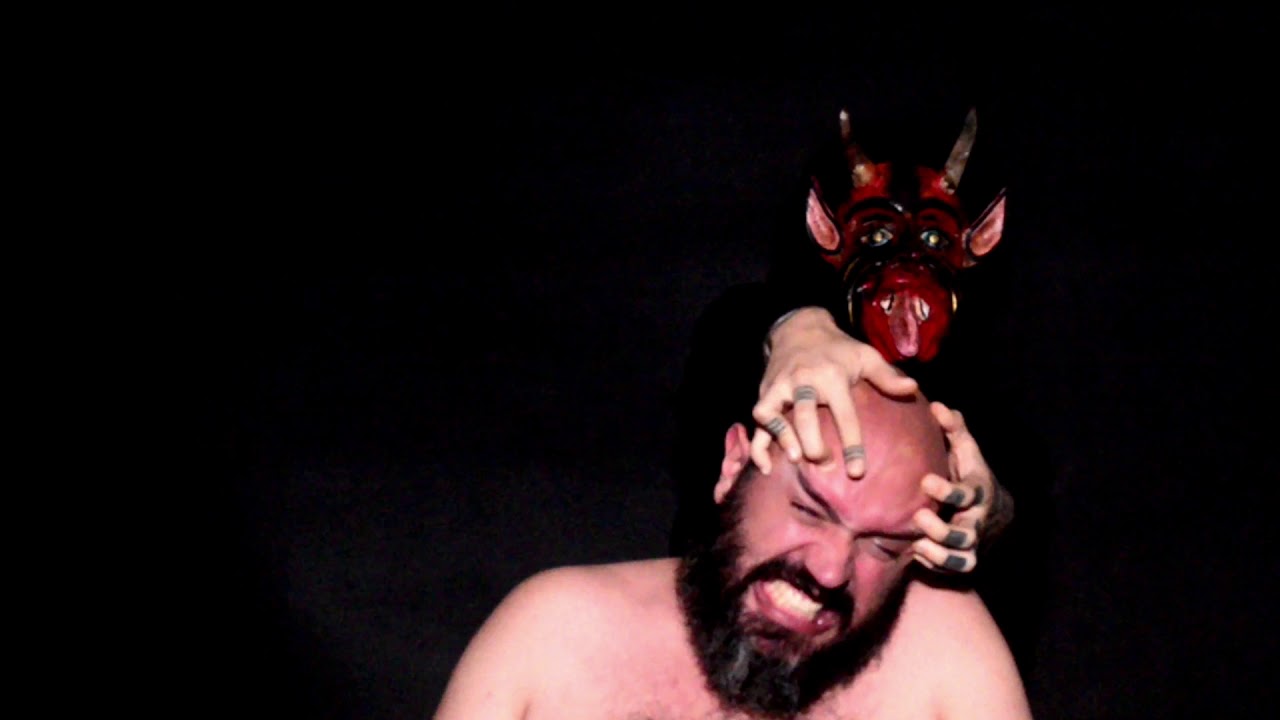Brazil’s Deaf Kids are one of those bands buoyed by a mystic kind of momentum, a ceaselessness whose source lies in some vital, but unknown spring. Their music is a glorious cacophony, a mixture of pummelling Gnod-esque cataclysms and the traditional sounds of their native Brazil and Latin America; it’s a brutal blend of hardcore punk, metal, experimental noise, and a pumping rhythmic vein with its roots in African and Indian polyrhythm.
Configuração do Lamento is the three-piece’s seventh LP in as many years. They’ve been ceaseless ever since frontman and chief songwriter Dvglas formed Deaf Kids as a D-Beat solo project in 2010, aged 17. Back then his intentions were innocent enough. “I just started a solo project because I didn’t know who’d want to play with me. It was DIY shit!” he smiles over Skype, where he speaks to tQ along with bandmates Marian (drums) and Marcelo (bass). Over the subsequent seven years, with seven LPs along the way, things changed.
The most important change in the band’s life was a relocation, from Rio de Janeiro to São Paulo, upon which all three members moved in together and started cross-pollinating their influences. “Living together we started to write a lot together, like we never did before, started to jam a lot here in our home. me and Mariano started another band together, really psychedelic shit. It came more naturally. They are 24, 29 and 32 respectively; a small age gap but a significant one when it comes to one’s musical ‘generation’. “Living together we started listening to a lot of different music, and together we realised that all of us were raised on samba. We’re from different generations but we’ve all gone through the process. This wasn’t being reflected on our sound, so it naturally became an aesthetic priority. We also realised that percussion had to play a big part.”
Marcelo is the best English speaker among the three – he teaches the language in his day job – and does much of the speaking on behalf of the trio. “The focus has changed from D-Beat,” he says. “We began to incorporate the auxiliary stuff, to look for connections to the psychedelic and to different rhythms, especially Brazilian stuff and stuff from all across the rest of South America and the world,” he explains, when I ask just how the trio arrived on such a phenomenal cornucopia of sonics. “We have a lot of interests, but we still want to make our music strong, with lots of intention.”
“One thing that hasn’t changed since I started is that I want to do something different,” adds Dvglas. “I want to change the aesthetics of things, to add stuff to sounds, and to move forward.” The band’s already-vast discography is as good a demonstration as any of this single-minded process of layering texture upon texture.
“I’m really into melting all my influences,” says Dvglas. “I wouldn’t use the word new, but [our music] is different. I think that music is really powerful, it’s my guide. We have all these crazy ideas, of wanting to be different and to surprise people, I want to mix things up and see what happens, and I have things to say, socially and politically.”
Deaf Kids are more than mere genre-trotters. Though they take an indirect, expressive approach, their blend of international influences with deep South American tradition and its African roots, has much to say about the broad reality of being Brazilian, and the region’s potted colonial past. “I guess in the beginning of the project it was about being politically aware of social inequality,” says Dvglas. “Nowadays there are lyrics that point both outside and inside because they’re more psychological. We want to address the weird reality of being a colonised country, rather than talking about specific things through specific lyrics. We’re interested in the phenomenon of being aware of this. We’re trying to fit the lyrics to the sound, and that might say a lot about these things.”
An example is a song on our last record called ‘As Mesmas Ferramentas, Os Mesmos Rituais’, which means ‘the same rituals’, Marcelo expands. “It came from a talk I was having with a friend about this relationship with the repetition and the relentlessness of shit since the colony began. Repetition can talk to you in a personal way, your shadows, the patterns you create from trauma, but it also means something macro. My friend tried to find out about his background, but he doesn’t know much past his grandfather. In Brazil, if you come from the indigenous people and you want to tell your story, you’ll find out that your history has been erased; you don’t know where you come from. Perhaps because of guilt or people being involved in a lot of stuff, a lot of rich people conceal their histories too. As a country we’ve had two dictatorships. We’re personal, not political, but at the same time there’s completely a social and political aspect of our lives, this is something that speaks to us on a personal level.”
It’s been a breathless journey to their most recent work, the multi-faceted and dazzling Configuração do Lamento. That album, a kaleidoscopic 23 minutes that lurches from gut-wrenching squalls of guitar to soul-consuming extensions of rhythm, soon caught the attention of Steve von Till of Neurosis when it first appeared in 2016. It’s newly reissued on his own Neurot label, a chance to extend their reach even further. “We did two tours [in Europe] already, it cost us a lot of money but we did it because we liked it, Marcelo explains, now [we’re extending our reach] naturally, without intervention, we didn’t try to push it onto anyone but suddenly Steve von Till got into it! We’re grateful, it’s opened a new world. It’s a milestone to have, but we don’t want to stop for a long time.
As for the next milestone: “Touring, lots of touring! We want to play new places, we want to play in Africa! Everything is going our way at the moment,” says Marcelo. “We’re a road band,” adds Dvglas. “We want to play everywhere on earth!”
We did two tours, we liked to play around the world, we spent money, we did it because we liked it. At the same time it’s nice to see it happen naturally, without intervention, we didn’t try to push it onto no one, and suddenly Steve von Till got into it, he got so into it that he had to talk to us! We’re grateful, it means that it opens a new world. It’s a milestone to have. We don’t want to stop for a long time, we’ve been together for seven years and who knows how much more time we can be together, maybe even more!”



